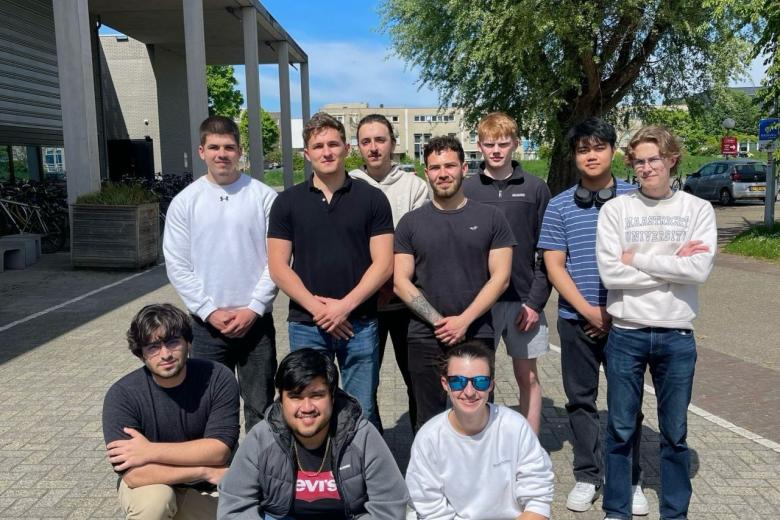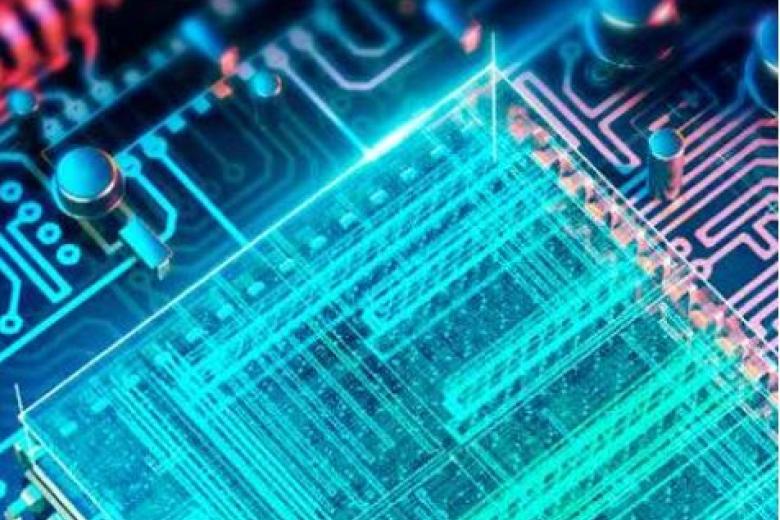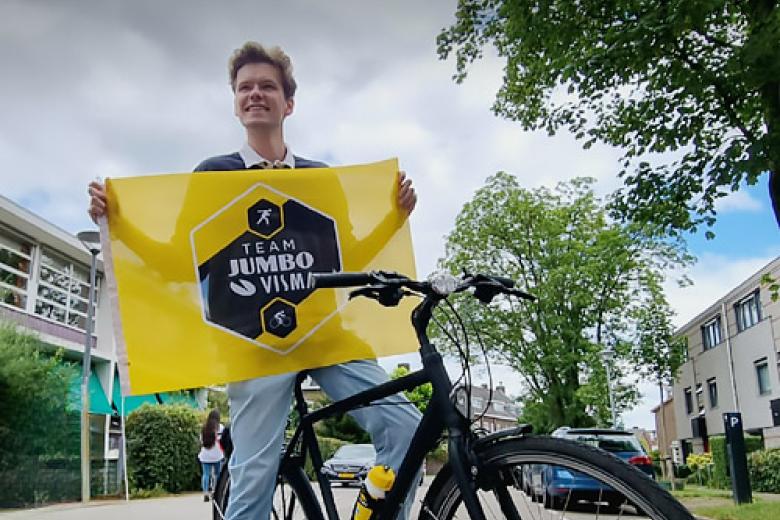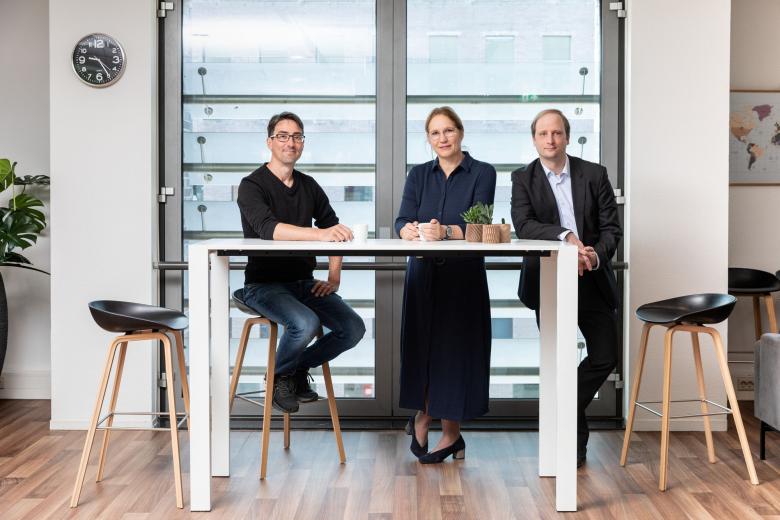Education
Our department offers in-house bachelor’s and master’s programmes covering artificial intelligence, data science and computer science.
We are the only university in the Netherlands to apply project-centred learning as our teaching method, which places a strong emphasis on skill development through elaborate group projects. We foster one of the most international environments in the country: our staff and students come from over 50 different countries, our student population is the most international among its peer groups in the Netherlands, and we teach in English.
Our in-house bachelor's and master's programmes in Data Science and Artificial Intelligence are part of the KION framework for Dutch artificial intelligence study programmes.
Our programmes
BSc Data Science and Artificial Intelligence
The bachelor’s programme in Data Science and Artificial Intelligence bases itself upon the disciplines of applied mathematics and computer science. The programme focuses on technical aspects of data science and artificial intelligence, and equips students with the knowledge and skills to develop smart systems for solving complex problems.
Since the programme’s start in 1992, it has grown into a consistently top-ranked Artificial Intelligence programme in the national Keuzegids ranking. Our bachelor’s programme draws over 200 first-year students annually. With around 75% international students coming from over 45 different countries, it is the most international AI bachelor’s programme in the Netherlands.
The award-winning KE@Work honours programme, which allows top-performing students to work at local organizations in the second and third year of their studies, is embedded in this bachelor’s programme.

BSc Computer Science
Our 3-year bachelor's programme in Computer Science focuses on developing software for the purpose of improving the performance of computers. The curriculum is designed to let students discover their interests within the field of computer science and to develop students' employability skills alongside their technical skills.
The bachelor’s programme in Computer Science is our newest study programme (to launch in September 2023) and follows the framework of the Association for Computing Machinery (ACM).
Top-performing students can participate in the CS@Work honours programme, which allows them to work at local organisations three days a week for the duration of one year. CS@Work is embedded in this bachelor’s programme.

MSc Artificial Intelligence
Our two-year Artificial Intelligence master’s programme teaches students to design and develop AI systems to perform complex tasks. These systems are able to act on their own and adapt to changing environments.
The Master’s programme in Artificial Intelligence started in 2005. Like our other programmes, it has a highly international student population: more than 80% of students join us from abroad.
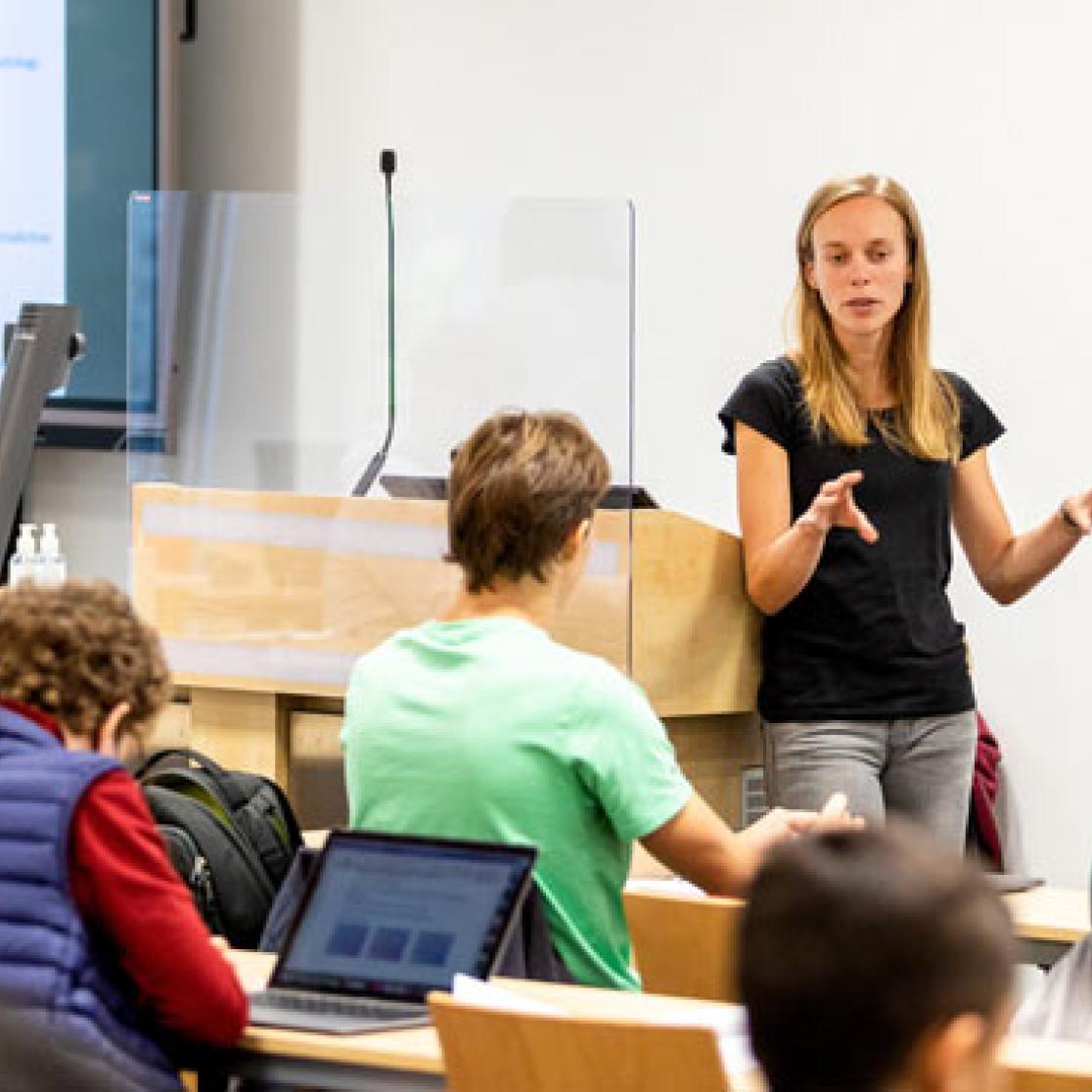
MSc Data Science for Decision Making
Our two-year Data Science for Decision Making master’s programme focuses on two aspects. The data science elements of the programme cover techniques to process, transform, and protect data, and to build models. We train students to extract useful information from data, to recognize patterns and anomalies, and to predict future behavior. Secondly, the decision-making elements of the programme cover techniques for intelligent decision-making that take advantage of the knowledge extracted from data.
Our Data Science for Decision Making master’s programme (formerly known as Operations Research) launched in 2005. More than 80% of students in this programme come from abroad.

For PhD candidates
We frequently have openings for PhD candidates in projects related to data science, artificial intelligence, computer science, and/or mathematics. We list our open PhD positions on the academic vacancy portal AcademicTransfer.

Teaching in other programmes
In addition to our own programmes, our staff teaches in other Maastricht University study programmes including University College Maastricht, Systems Biology, Maastricht Science Programme, Business Engineering, Circular Engineering, University College Venlo, Health Sciences, and Global Studies.
Within these programmes, the department covers courses related to data science, artificial intelligence, applied mathematics and computer science.
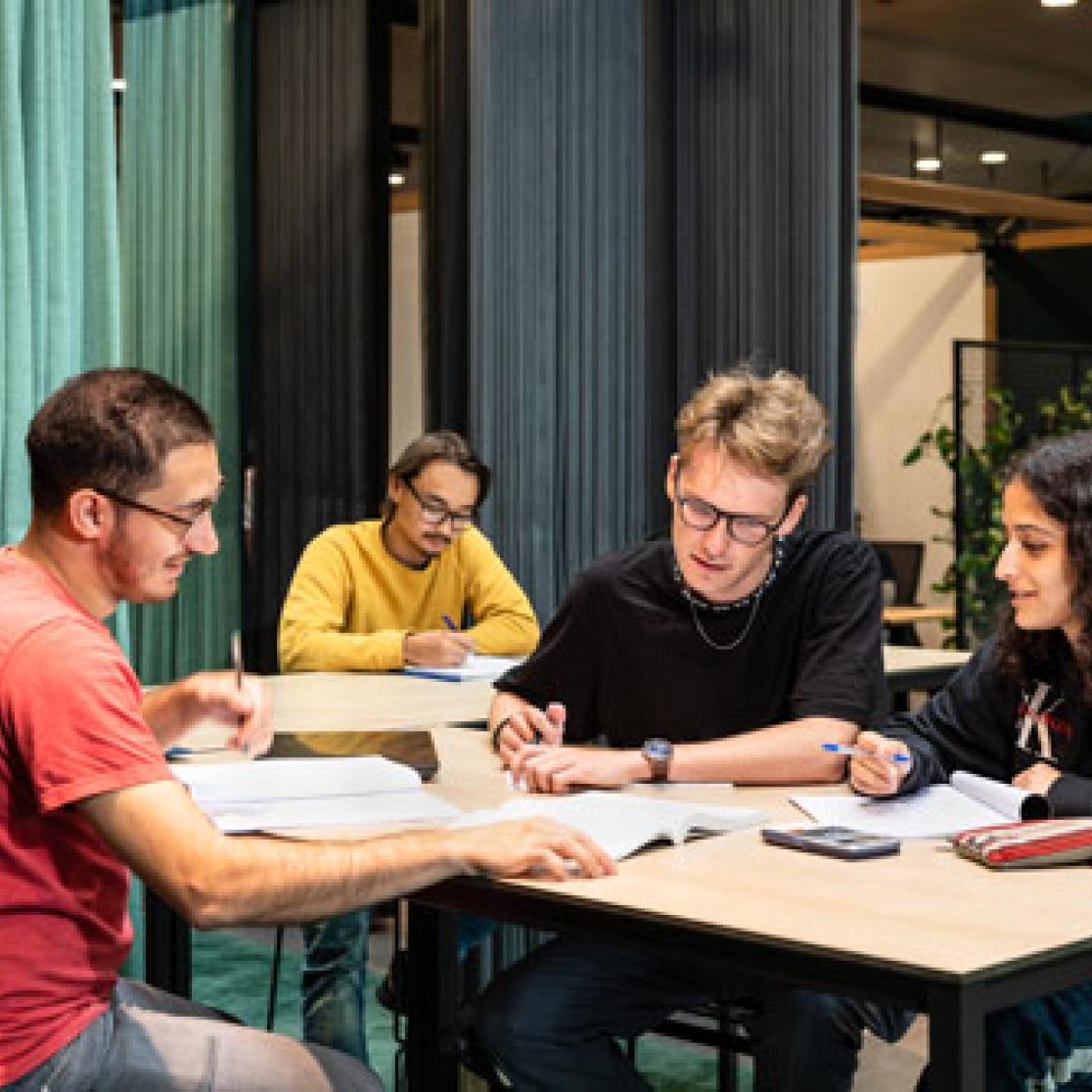
Summer schools and professional education
The department offers the 4-day online course Introduction to Data Science via the Maastricht Summer School. This annually recurring summer school covers the basic methods and practices of a data science project.
Professional education takes place via the Brightlands Institute for Smart Society (BISS), for instance in the Data Science Bootcamp.

Our teaching method
All of our bachelor’s and master’s programmes employ project-centred learning, a variant of Maastricht University’s signature problem-based learning. In addition to technical skill development, this educational model trains employability skills such as teamwork, project planning, documenting, and presenting.
In project-centred learning, students work in small groups to tackle two big projects per year (amounting to one per semester). These projects last around five months each and run parallel to courses, which follow a lecture- and tutorial-based setup. The level of the projects, and the products students need to deliver, matches the students’ study progress by requiring knowledge obtained from coursework.
We base projects on real-life research and/or societal challenges provided by our staff and by companies. Projects for instance require students to design a quadcopter platform for an autonomous swarm, to optimize timetables, to automate the recognition of facial expressions, or to design and implement a traffic simulator.

